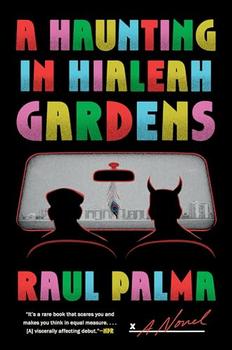Summary | Excerpt | Reading Guide | Reviews | Beyond the Book | Read-Alikes | Genres & Themes | Author Bio

A Novel
by Yuko TsushimaThis article relates to Territory of Light
 Born in 1947 in the Tokyo suburb of Mitaka, Yūko Tsushima was one of the most accomplished Japanese novelists of her generation at the time of her death from lung cancer in 2016. The author remains lesser known outside of Japan, but with the recent translations of Territory of Light and Of Dogs and Walls, there has been a small wave of critical and popular interest in her work in the English-speaking world.
Born in 1947 in the Tokyo suburb of Mitaka, Yūko Tsushima was one of the most accomplished Japanese novelists of her generation at the time of her death from lung cancer in 2016. The author remains lesser known outside of Japan, but with the recent translations of Territory of Light and Of Dogs and Walls, there has been a small wave of critical and popular interest in her work in the English-speaking world.
Tsushima's work can be divided into two periods. Her earlier novels and stories experiment with the conventions of "I-fiction," a dominant narrative style of Japanese prose. The genre features a meditative first-person voice, a focus on intimate bonds between characters, and an interest in blurring the line between fact and fiction. Tsushima's later works, by contrast, are more formally daring and explicitly political. They reckon with Japan's cultural memory of empire, war and dispossession, and they consider the influence of state power on the household.
The author started her literary career with early success. As an aspiring writer, she contributed to the private literary magazine Bungei shuto, a nationally respected publication. Her earliest novels, published in the 1970s, cemented her reputation as an author of serious fiction. She won several prestigious prizes, including the Izumi Kyoka Prize (1977), the Women's Literature Prize (1978), and the Noma Prize for New Writers (1979). The author's critical acclaim continues to build even after her death.
Tsushima's 17 novels share many aesthetic tendencies and themes. They often feature single mothers and other figures marginalized in Japanese society, and they deal with themes of abandonment, economic hardship and female autonomy. The novels close the gap between the personal and the political, examining topical issues in Japan through the lens of women's daily lives.
The author herself endured plenty of hardship. Her father Osamu Dazai, a famous Japanese writer, infamously committed suicide with a lover and fan when Tsushima was just a girl; his drowning forms the basis of "The Watery Realm," a recently translated story included in Of Dogs and Walls. Later in life, the author found herself forced to provide for her family as a single mother, and one of her own children tragically drowned at an early age.
Currently six translations of Tsushima's fiction have been published in English: Child of Fortune (1978), Territory of Light (1979), Woman Running in the Mountains (1980), The Shooting Gallery & Other Stories (1973-84), Laughing Wolf (2001) and Of Dogs and Walls (1982-2014). With the exception of Laughing Wolf, Geraldine Harcourt has translated each of the books.
While the author's work isn't as internationally prominent as that of some of her peers, like Haruki Murakami or Yōko Tawada, Yūko Tsushima's output is impressive in scope and daring in style. It's not hard to see why writers such as Margaret Drabble and Donald Richie have likened Tsushima to Virginia Woolf and Jean Rhys. Her fiction fully renders the inner lives of women while meditating on social conflict; Territory of Light makes a welcome addition to any collection of translated fiction.
Author Yūko Tsushima, courtesy of The Japan Times
Filed under Books and Authors
![]() This "beyond the book article" relates to Territory of Light. It originally ran in February 2019 and has been updated for the
March 2020 paperback edition.
Go to magazine.
This "beyond the book article" relates to Territory of Light. It originally ran in February 2019 and has been updated for the
March 2020 paperback edition.
Go to magazine.




Great literature cannot grow from a neglected or impoverished soil...
Click Here to find out who said this, as well as discovering other famous literary quotes!
Your guide toexceptional books
BookBrowse seeks out and recommends the best in contemporary fiction and nonfiction—books that not only engage and entertain but also deepen our understanding of ourselves and the world around us.